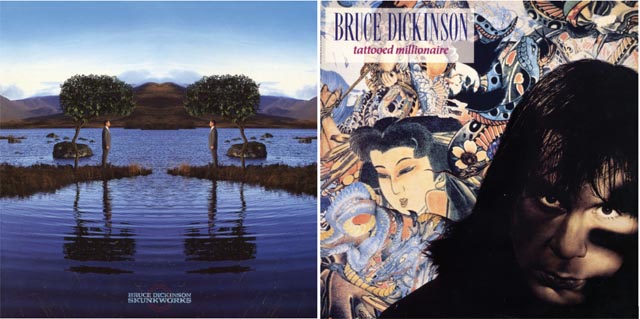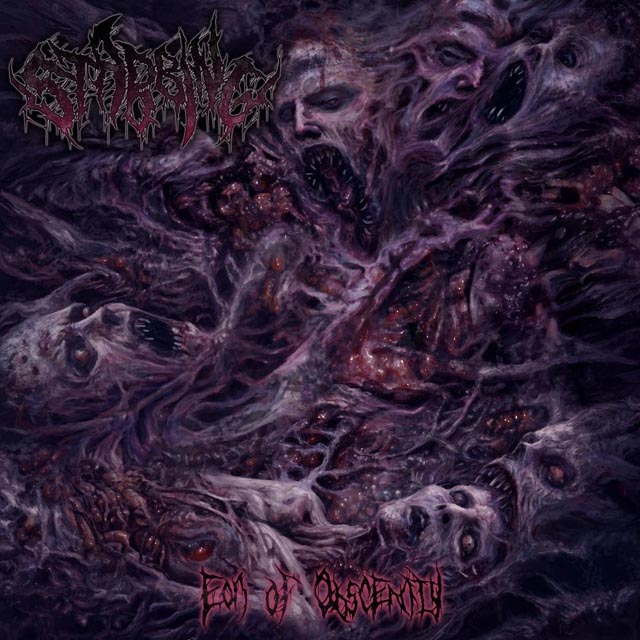 One of metal’s most overlooked albums is turning 40 today, and what better day to show it a little love? The cool thing about metal is there’s always been a reverence and respect for the past, even as the genre takes on strange new forms. This means you’re just as likely to find some sweaty dude in the pit sporting a Black Sabbath tee as you are spotting someone in Iron Maiden gear, and that’s a good thing. It’s nice to see strangers emblazoned with the logos of metal’s history; it gives me hope these pioneers won’t be forgotten. It’s even nicer to see people actively searching through metal history, or those recommending to start with “the classics” like Paranoid or Killers.
One of metal’s most overlooked albums is turning 40 today, and what better day to show it a little love? The cool thing about metal is there’s always been a reverence and respect for the past, even as the genre takes on strange new forms. This means you’re just as likely to find some sweaty dude in the pit sporting a Black Sabbath tee as you are spotting someone in Iron Maiden gear, and that’s a good thing. It’s nice to see strangers emblazoned with the logos of metal’s history; it gives me hope these pioneers won’t be forgotten. It’s even nicer to see people actively searching through metal history, or those recommending to start with “the classics” like Paranoid or Killers.
One thing I rarely see, though, is people wearing Judas Priest patches or pins on their vests, or discussions about the band’s classic 1976 record, Sad Wings of Destiny. It should be essential metal listening, but the band, for whatever reason, is just lacking in popularity this century while their contemporaries are maintaining heavy metal posture. Just look at this. I mean, this is the legendary Judas Priest we’re talking about, and this is essentially their formative heavy metal record (Rocka Rolla was done by an almost entirely different lineup). I can’t fathom a reason for it, so I’m doing a bit of a PSA as a birthday present.
At this point in ‘76, Sabbath already peaked with Sabotage, and Iron Maiden wouldn’t come around until 1980. Who carried the metal flag for rest of the ‘70s? Priest did. Not only did they defend the faith for about half of a decade, they laid the groundwork for what would become metal staples to this day, and much of it is on their first album. If metal was born with Black Sabbath’s eponymous album, metal starts to crawl with Judas Priest’s Sad Wings of Destiny.
K.K. Downing and Glenn Tipton open the record with a shining example of why every band should have a twin-guitar attack on the progressive epic “Victim of Changes,” cementing themselves as the best duo in metal across the album’s solos and harmonies. Rob Halford wastes little time showing off his virtuosity, wailing and crooning his way across the record like a proto-Mike Patton, using more voices and techniques than you’d expect. Founding member Ian Hill’s bass work allows the band to be a nimble beast, complementing Downing and Tipton through driving rhythms and trade-off solos. Alan Moore’s drumming is spartan and sufficient, exemplifying why the band probably could have played with anyone (and did).
Sad Wings of Destiny has it all: badass fallen angel album art, a song about a serial killer in “The Ripper,” a psychedelic slow burner (“Dreamer Deceiver”), possible sexual innuendo (“Island of Domination”), and more quality riffs and solos than you can shake a stick at. So treat it like you would anything else turning 40 – party hard with it, poke a bit of fun at it, and show it some damn respect.
[youtube]https://youtu.be/Xu0z1csRnKQ[/youtube]












